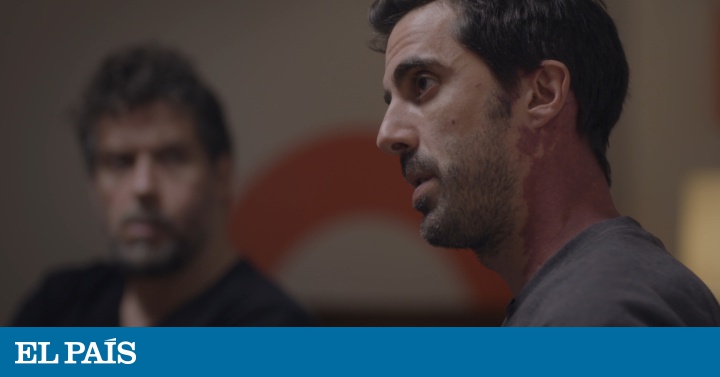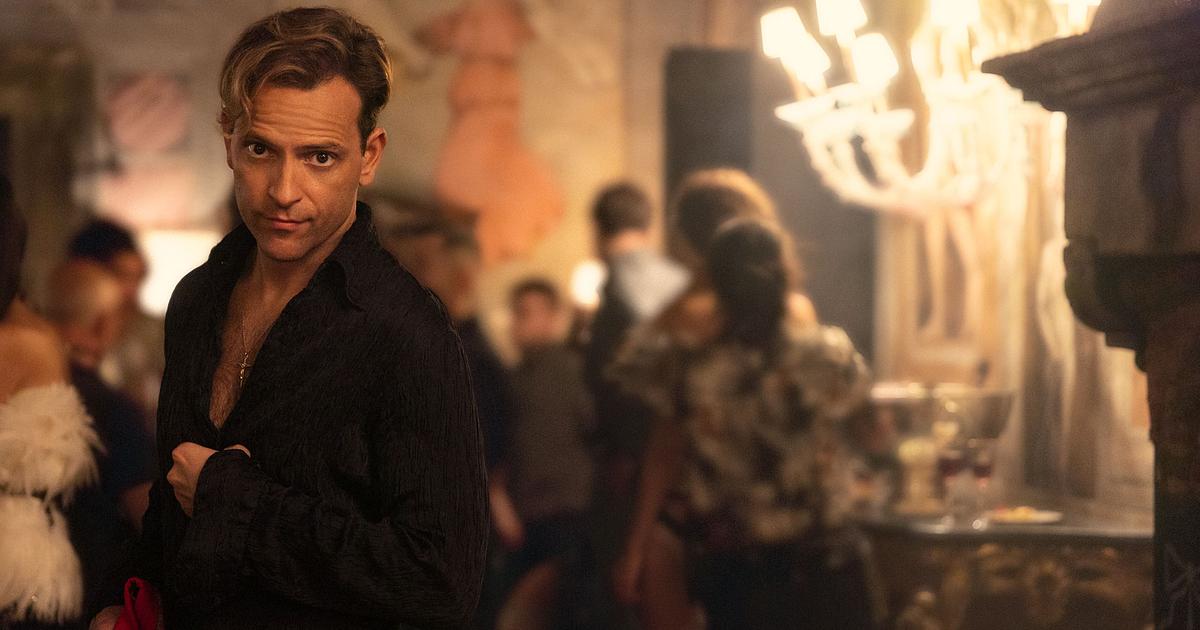The filmmaker Iván Roiz was going through a personal crisis when he discovered a few years ago about the existence of encounters of men who meet to chat in private.
These collective meetings, called circles and organized by activist groups in favor of gender equality, try to break the cultural barrier that prevents many of them from expressing their emotions and weaknesses.
In a room with strangers and, generally, no therapists involved, they find a safe space in which to let themselves be.
The inner conflict that was unleashed in him, through a relationship crisis in which jealousy and certain patterns arose, made him reflect.
His brother lent him a book on new masculinities that a friend had recommended to him and in which he discovered this type of initiative.
"I felt identified with what I had, with the ideas of the alpha march, forced leadership and that toxic masculinity that also harms men," says the man from Madrid.
“After participating in some of these circles, I saw that there was a place to do personal and political change work.
And I thought I would have liked someone to have guided me to them earlier ”.
This is how Roiz understood that there was a movie to shoot.
He told the Cádiz-born Álvaro Priante, a friend in his thirties and a partner in the direction of another of his projects, about these group appointments (
Barefoot giants
).
He also signed up for one of them in Catalonia, where he lives: "There are many people of our generation who were asking the same questions as us and we thought about the benefits of filming these questions," he says.
In parallel but at a distance, they have built together the documentary
El Círculo
, a kaleidoscopic portrait of the doubts raised by six heterogeneous groups of men about what masculinity means in the 21st century.
In the film, produced by Nanouk Films and which can be seen on the Movistar + digital platform, its participants talk with all kinds of opinions, ideologies and political corrections about the privileges of living in a patriarchal society.
Also about the disadvantages they find in her, when they feel pressured to comply with certain stereotypes, and about the relationship they have with women, violence and sexuality.
With the advantage of having previously participated in these circles and keeping many distances thanks to a minimum filming equipment, they managed to make the members of these meetings forget about the cameras.
Some of the first sentences that appear in the 80 minutes of footage are the most controversial.
“It didn't make sense for us to do a feminist essay.
We preferred to make a description as realistic as possible, including men very different from us and in which those uncomfortable phrases and opinions were not ignored, such as those that emerge every day on the terrace of a bar or on social networks ”, says Priante .
“Those reactions typical of the antagonist, which many of us have when a woman tries to talk to us about gender equality, was the necessary starting point for the story.
I understood as part of the circles that many men find it more difficult to recognize their mistakes when it is a woman who makes them see them ”, adds Roiz.
For the directors, the key to the proposal lies in generating empathy among the male viewer through men like Justo, whose life took a turn when he was 50 years old, leaving aside what he calls the life of an aggressive executive who found self-destructive.
Julián, a playwright whose recent fatherhood has pushed him to change some patterns in his life;
Manuel, a neighborhood boy from Madrid;
and Ricardo, a Venezuelan who emigrated to Barcelona and victim of mistreatment within a homosexual couple, also express their opinions.
Among so much diversity, there are many common points.
“Childhood and youth mark many of our negative patterns, no matter what generation we belong to and in what social environment we grew up.
It is not a question of men declaring ourselves victims of toxic masculinity, but of identifying it as the problem that must be changed ”, defends Priante.
Clone a man
While filming
El Círculo
, Iván Roiz took advantage of the access he had to so many male testimonies to create a side project,
Clone a man
.
In this case, the participants speak into the camera with the intention of creating a conversation around male identity.
The result can be seen on the YouTube channel titled as the tape, Clone a Man.
This 40-minute long documentary medium-length film is licensed under a Creative Commons license, so Roiz encourages anyone who wishes to disseminate it and use it for teaching or group activities.
It has also created a Guide to support reflection that can be downloaded for free on the web www.clonaraunhombre.org, to try to energize men's groups, student groups or any social activity.
Along with the YouTube recording, a discussion about the documentary has been published.
The director and Ana Requena Aguilar, journalist and editor-in-chief of gender at eldiario.es participate in it.
Also taking part is the filmmaker Isabel de Ocampo, winner of a Goya award and in whose documentary You will be a man she raises similar questions.
“It is often understood that being a man means not being a child, not being a woman or not being a homosexual.
The problem is that the concept is built from the rejection of other things, especially the feminine;
the challenge is to build a masculine identity without relying on being the opposite of something else ”, the director told Doc & Roll in 2019, coinciding with the premiere of her film.









